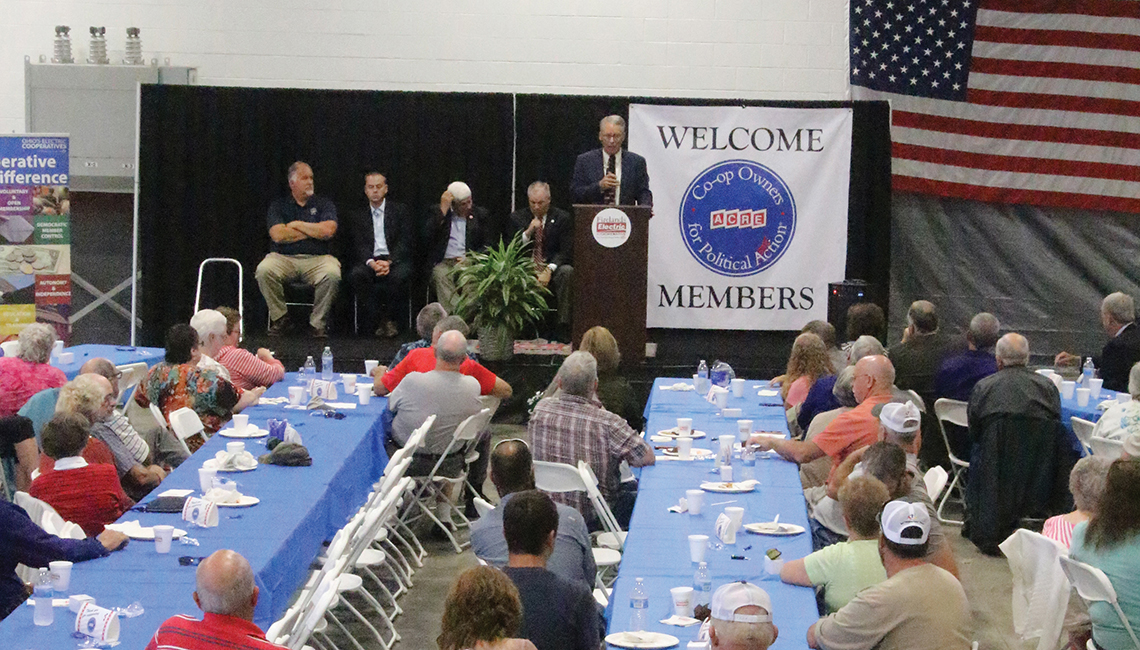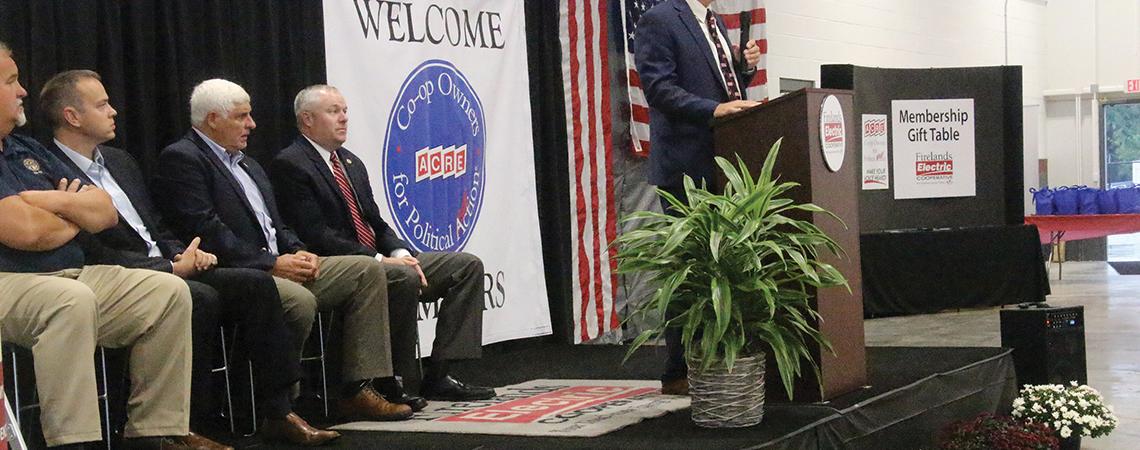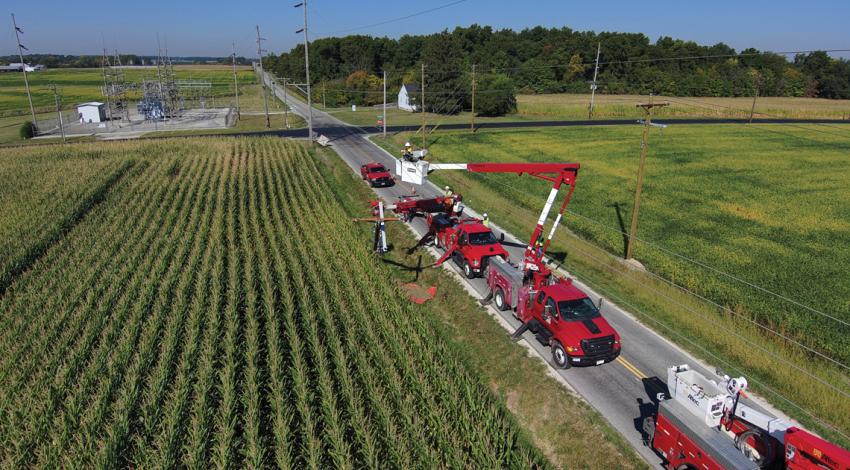Allen Heindel of Celina says he’s not particularly active politically, beyond voting for issues and candidates that represent his views.
However, as a member of St. Marys-based Midwest Electric, Heindel understands that there are political issues that affect the cooperative and, as a result, also affect his own individual interests.
Dan McNaull, general manager of Firelands Electric Cooperative, addresses members during an ACRE breakfast, which featured Rep. Bob Gibbs (center, seated), as well as state representatives.
“I feel that Midwest does a nice job keeping us informed about what’s happening legislatively and how those things might affect the cost of electricity,” says Heindel, an engineer with Crown Equipment Corporation in New Bremen. “It just makes sense for electric cooperative members to have a voice in the legislative arena, because these are things that affect us every day.”
Heindel says his parents, also Midwest members, were active participants in ACRE — the Action Committee for Rural Electrification, which was founded in 1966 — and he and his wife recently decided to join, through ACRE’s Co-op Owners for Political Action (COPA). They make a small donation to the political action committee (PAC) each month through an addition to their electric bill.
ACRE is the federal PAC of the nation’s electric co-ops. It supports political candidates who will speak for and protect the interests of electric co-ops and their members around the country. Through COPA, co-ops can invite their residential consumer-members to be politically engaged in ACRE and in other important grassroots advocacy initiatives.
More than 35,000 individuals nationwide make an average annual contribution of $65 to be members — and Ohio, in fact, is the national leader in co-op members’ participation, both in total number of members (more than 6,200) and total annual amount contributed to the cause.
“Our cooperatives made a concerted effort to put the issues in front of our members a few years ago, when there were some specific things in front of Congress that would have been especially costly to them, because those issues may well have caused the shutdown of our power plant,” says Matt Berry, general manager of Midwest Electric. “We got that information out, the members agreed that our position needed to be communicated to our representatives, and we got hundreds of members to sign up almost overnight.”
That kind of grassroots involvement from similarly motivated individuals can have a significant impact on legislation, according to Brian Hill, the general manager of New Concord-based Guernsey-Muskingum Electric Cooperative. Before he took over as GMEC’s general manager, Hill represented the 97th district in the Ohio House of Representatives for six years and served another few months in the Ohio Senate. His campaign was the recipient of donations from ACRE.
“No one should have any illusions that their donation is going to buy anyone’s vote — that’s not what it’s all about,” says Hill. “But when you, as a legislator, get donations from a group like ACRE, a truly grassroots organization that might not have a huge amount of money but has a large number of contributors, you can be sure that that group’s voice is going to be heard loud and clear.”
“ACRE is a completely nonpartisan organization,” says Marc Armstrong, director of government relations at Ohio’s Electric Cooperatives, the statewide organization that provides services to Ohio’s co-ops. “The idea is to support candidates who have shown that they support the issues that we also support.”
Among national priorities in the next legislative session will be to ask Congress to allow repricing of some of the debt held by co-ops nationwide, which could save a typical co-op around $2 million per year in interest payments — members’ money — by taking advantage of current rates.
In Ohio, a main priority will be to expand connectivity to broadband in un- or underserved parts of the state, area that is largely served by electric co-ops. Regulations, tax reform, and governance are also issues in which co-op members have a vested interest.
Heindel appreciates the work done by co-op and local representatives to keep membership apprised of co-op-related issues. “To me, it’s helpful to be able to get insight that goes beyond what news coverage is able to convey,” he says. “Being a member of ACRE has helped me, I think, to get a complete picture of the issues involved and really opened my eyes to the items that are important to me as a co-op member.”
“Before the pandemic, we hosted a breakfast for our ACRE members and invited our U.S. congressman and two state representatives,” says Dan McNaull, general manager of Firelands Electric Cooperative in New London. “For some of our members, that was the first time they ever had an opportunity for one-on-one conversations with their elected representatives. But just as importantly, it let the representatives actually see the expressions of our members when they were talking about these things, to see how passionately they felt.”
How to make your voice heard
Electric cooperative members can add their voice to thousands of others around the state and nation by joining ACRE Co-op Owners for Political Action for as little as a $25 annual contribution, or about $2.08 per month.
Ninety-nine percent of all contributions to ACRE go directly to the campaigns of candidates for political office, based solely on their support for electric cooperative issues — and never on party affiliation.
“Sometimes, when someone emails or writes to their representatives, they wonder if that message even makes it out of the mailroom,” says Dan McNaull, general manager of Firelands Electric Cooperative. “With an ACRE membership, we are assured that our messages are being personally delivered and that they are being heard.”
Those wishing to join with their contributions should contact their electric cooperative for details and information. The process is usually as simple as filling out a short form and agreeing to have the small donation added to a member’s monthly electric bill.










